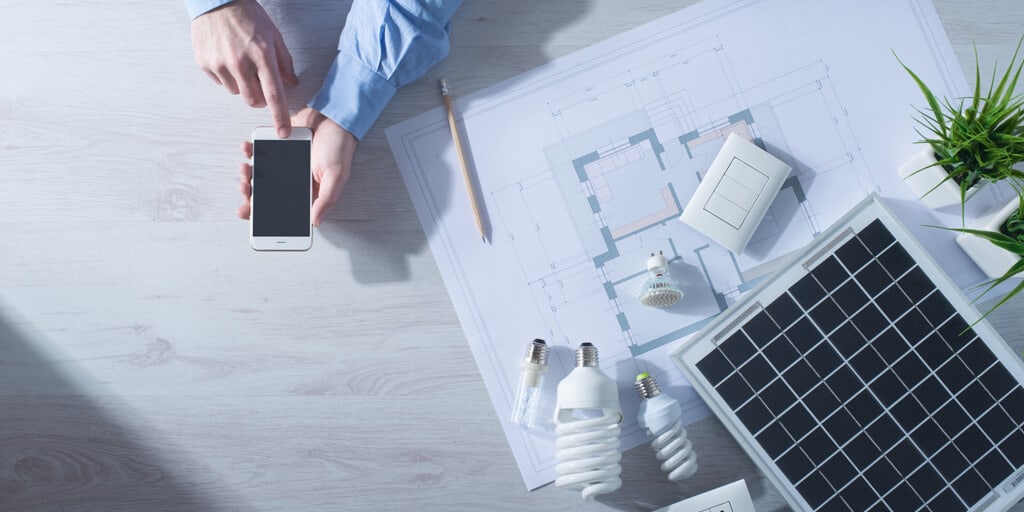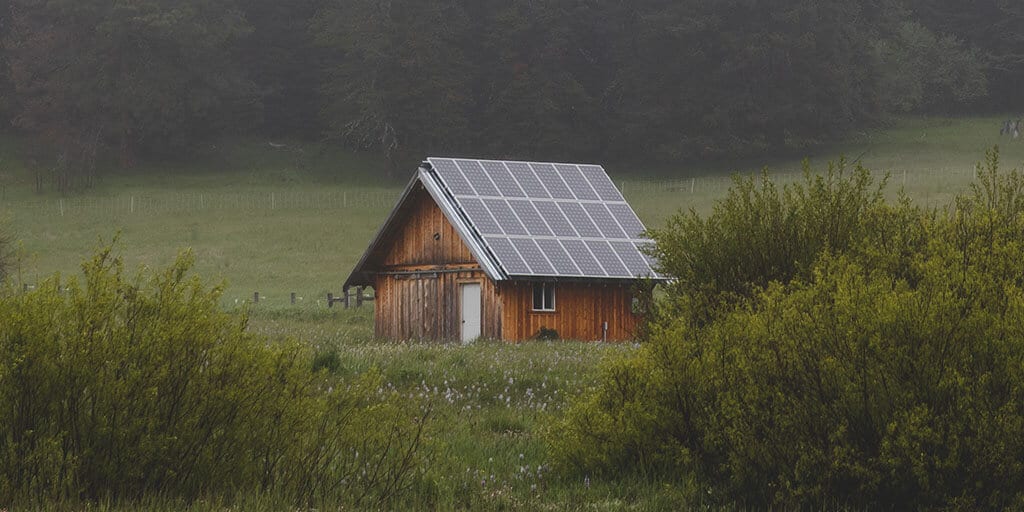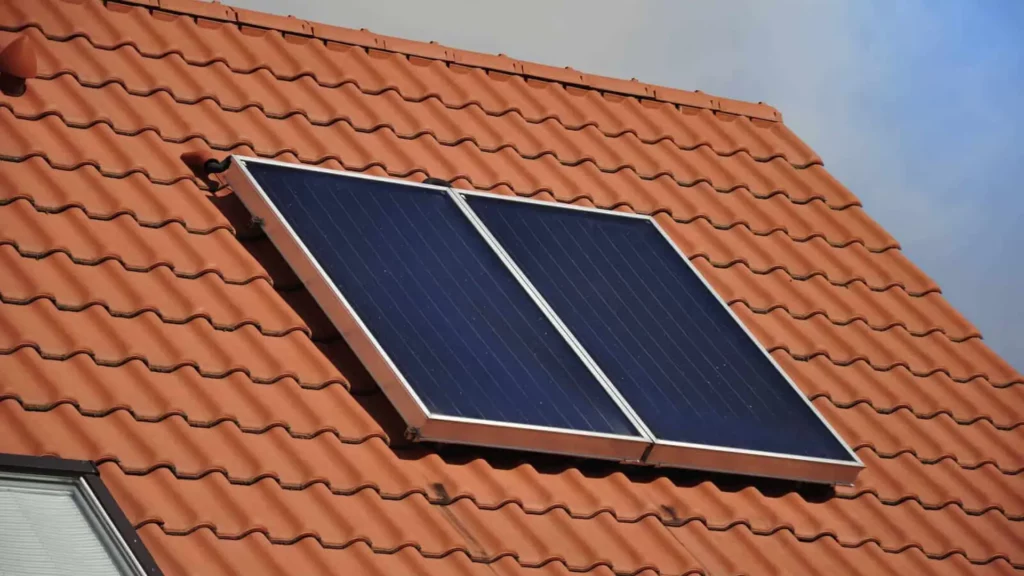Is It Possible To Fully Power Your Home With Just Solar Panels, All Year Round?
In a world where sustainability and self-sufficiency are at the forefront of my mind, I've often wondered if it's possible to fully power my home with just solar panels. The concept of harnessing the sun's energy to meet all of my electricity needs is not only intriguing but also aligns perfectly with my desire to lead a more environmentally conscious lifestyle. With every passing day, I find myself more motivated to explore the potential of solar power and its ability to provide me with the independence and benefits I crave.
See also our post on Energy Saving Projects in Industry
Like many others, I've witnessed the growing environmental concerns associated with our reliance on fossil fuels. The thought of reducing my carbon footprint and contributing to a cleaner, greener future has been a driving force behind my quest for alternative energy solutions. It was during this pursuit that I stumbled upon the incredible world of solar power and its potential to revolutionize the way we power our homes.
Understanding Solar Power
How Solar Panels Work Solar panels, also known as photovoltaic (PV) panels, harness the sun's energy and convert it into usable electricity. They are composed of multiple solar cells made of semiconductor materials, typically silicon. When sunlight hits these cells, it excites the electrons within, creating an electrical current. This current is then captured and converted into usable AC (alternating current) electricity through an inverter, which can power your home's electrical appliances and systems.
Check out our post on Unlocking Potential with GSL Energy Powerwall and BESS Container

The Benefits of Solar Energy for Your Home
Financial Savings and Return on Investment (ROI)
Investing in solar panels can lead to substantial financial savings over time. By generating your own electricity, you can significantly reduce or eliminate your monthly utility bills. Depending on various factors such as system size, energy consumption, and local electricity rates, homeowners can experience a return on investment within a few years. Solar panels also provide protection against rising electricity costs, as you become less reliant on utility companies and their fluctuating rates.
Environmental Impact: Clean and Renewable Energy
Solar power is a clean and renewable energy source, emitting no greenhouse gases or harmful pollutants during operation. By transitioning to solar energy, you can reduce your carbon footprint and contribute to mitigating climate change. Embracing solar power helps protect the environment, preserves natural resources, and fosters a more sustainable future for generations to come.
Energy Independence and Reliability
One of the significant advantages of solar energy is the potential for energy independence. By generating your own electricity, you become less reliant on the traditional power grid, which is susceptible to outages and disruptions. Solar panels provide a reliable and consistent source of power, ensuring that your home remains operational even during grid failures or natural disasters.
Long-Term Cost Stability
Solar power offers long-term cost stability, shielding homeowners from the volatility of utility electricity rates. Once installed, solar panels provide free and abundant energy from the sun, reducing your reliance on expensive fossil fuel-generated electricity. This stability allows for better budgeting and financial planning for the future.
Increased Property Value
Installing solar panels can increase the value of your property. Studies have shown that homes equipped with solar energy systems tend to sell faster and at higher prices compared to non-solar homes. Potential homebuyers are increasingly recognizing the benefits of solar power, making it a desirable feature in the real estate market.
Government Incentives and Tax Credits
Governments at various levels offer incentives and tax credits to encourage the adoption of solar energy. These incentives can significantly reduce the upfront costs of installing solar panels, making the transition more affordable for homeowners. Federal tax credits, state and local rebates, and net metering programs are some of the incentives available in many regions.
Power Your Home With Just Solar Panels
Can Solar Panels Fully Power Your Home?
Determining Your Energy Needs
To assess if solar panels can fully power your home, it's crucial to determine your energy needs. Evaluate your historical electricity consumption and consider any changes in your future energy demands. This analysis will help you estimate the size of the solar system required to meet your energy requirements.
Assessing the Solar Potential of Your Property
The solar potential of your property depends on various factors, including geographic location, roof orientation, shading, and available space. Assessing these aspects helps determine the feasibility of generating sufficient solar energy to power your home. Consult with a solar professional or use online tools to estimate the solar potential of your property accurately.
Understanding System Capacity and Efficiency
Solar system capacity is determined by the size and number of solar panels installed. A larger system will generate more electricity, potentially allowing you to fully power your home. Additionally, consider the efficiency of the solar panels you choose, as higher-efficiency panels produce more electricity from the same amount of sunlight.
Energy Storage Solutions
To achieve full energy independence, you may consider incorporating energy storage solutions like batteries into your solar system. These batteries store excess electricity generated during the day for use during nighttime or times of high energy demand. With energy storage, you can maximize the utilization of your solar-generated electricity, even when the sun is not shining.
Grid-Tied vs. Off-Grid Systems
Grid-tied systems are connected to the traditional power grid, allowing you to draw electricity from the grid when needed and export excess solar energy. Off-grid systems, on the other hand, operate independently without any connection to the grid. Off-grid systems require more planning and investment in storage solutions to ensure a reliable power supply.
Powering Your Home All Year With Solar
When it comes to powering your home with solar panels, it's important to understand that their effectiveness may vary throughout the year. However, with proper planning and consideration of key factors, you can still enjoy the benefits of solar power year-round. Here are some detailed ways to maximize the use of solar panels and save money and energy in the process:
See also our post on Photovoltaic Cells: How Do They Work and How Can They Save You Money
Understand your energy needs
Before diving into solar power, it's essential to assess your energy requirements. On average, it takes around one thousand square feet of solar panels to meet the energy needs of a typical home. Be prepared to allocate sufficient space for your panels to generate the necessary amount of electricity.
Location matters
While the southwestern United States receives the most sunlight, other regions can still harness solar energy effectively. Understanding the amount of sunlight available in your specific location will help you optimize your solar opportunities. Research the solar potential of your area and consult with solar professionals to determine the feasibility and potential output of your solar panels.
Consider panel tilt
The angle at which your solar panels are tilted plays a crucial role in maximizing energy generation. Ideally, tilt your panels to match your site's latitude to capture the most sunlight throughout the year. If your roof faces south, it provides the best orientation for solar panels. Additionally, adjusting the tilt by adding fifteen degrees during winter and subtracting fifteen degrees during summer can further optimize energy production.
Choose the right panel type
The type of solar panel you select is another important consideration. Tiltable panels offer more flexibility and can be adjusted to capture sunlight at various angles throughout the year. If you reside in the southwestern region, flat-panel systems are particularly effective, as they can capture abundant sunlight year-round.
Explore additional solar technologies
To maximize your solar power usage, consider incorporating complementary technologies. Battery storage systems allow you to store excess solar energy during the day for use during periods of low sunlight or high energy demand. By coupling your solar panels with energy storage, you can achieve greater energy independence and optimize your solar-generated electricity.

Environmental Impact of Solar Panels Power
Solar power has a profound environmental impact, primarily through its ability to reduce carbon emissions and combat climate change. Unlike traditional electricity generation methods that rely on burning fossil fuels, solar energy is a clean and renewable source of power. By harnessing the sun's energy, solar power systems produce electricity without emitting greenhouse gases, helping to mitigate the harmful effects of carbon dioxide emissions on the environment.
Read also our post on Green Air Conditioning and How Can It Help
In addition to reducing carbon footprints, solar power plays a vital role in conserving natural resources. Conventional electricity generation relies heavily on finite resources such as coal, oil, and natural gas. By shifting to solar energy, we decrease our dependence on these resources, preserving them for future generations. Furthermore, solar panels have an impressive lifespan and require minimal maintenance. This longevity not only reduces waste but also minimizes the need for frequent replacements, thereby contributing to resource conservation and environmental sustainability.
Another significant environmental benefit of solar power is the reduction of air and water pollution. Traditional electricity generation methods release pollutants into the air, contributing to air pollution, smog, and associated health problems. Solar power, on the other hand, produces electricity without any emissions, thus improving air quality and reducing the detrimental effects on human health and the environment. Additionally, solar energy systems do not contaminate water sources, as they do not require water for their operation. This helps protect vital water resources and ecosystems from pollution and depletion.
Energy Independence and Resilience
Utilizing solar panels to fully power your home goes beyond the immediate benefits of cost savings and environmental impact. It also offers a sense of energy independence and resilience in the face of disruptions and contributes to the stability of the energy grid.
By relying on solar power, you can significantly reduce your dependence on the utility grid. With a properly designed solar system, capable of generating sufficient electricity to meet your needs, you become less reliant on the utility company for your energy supply. This energy independence grants you greater control over your electricity consumption and shields you from escalating utility prices. Additionally, it provides protection against power outages, which can occur due to extreme weather events or other disruptions. With the integration of energy storage solutions, such as batteries, you can store excess solar energy during the day and use it to power your home during the night or during periods of low sunlight, ensuring a consistent energy supply.
During power outages and natural disasters, solar power systems with energy storage capabilities offer increased resilience. While traditional electricity sources may be compromised, your solar system can continue to generate power, allowing you to maintain essential functions and power critical appliances in your home. This resilience can make a significant difference in ensuring the comfort, safety, and well-being of your household during challenging times.
Moreover, the widespread adoption of solar power contributes to the stability of the energy grid as a whole. Distributed solar installations, distributed across various homes and businesses, help alleviate the strain on the grid during peak demand periods. Excess solar-generated electricity can be fed back into the grid, reducing the need for additional conventional power generation. This not only decreases the reliance on fossil fuel-based electricity but also enhances the overall resilience and reliability of the energy infrastructure. By participating in this decentralized approach to energy generation, you become an active contributor to grid stability and support the transition toward a more sustainable and resilient energy system.
Harnessing the power of solar panels to fully power your home not only provides energy and cost savings but also offers a greater sense of independence and resilience. The ability to generate and store your own electricity provides security during power outages and contributes to the stability of the energy grid. By investing in solar energy, you become an active participant in shaping a sustainable and resilient energy future.
FAQ: Powering Your Home with Solar Panels
Can solar panels power a house during a power outage?
Yes, solar panels can power a house during a power outage, especially if they are coupled with an energy storage system like batteries. These batteries store excess electricity generated by the solar panels during the day, which can then be used during power outages. Without a battery system, solar panels alone may not provide power during an outage, particularly if they are grid-tied.
How many solar panels to run a house off-grid?
The number of solar panels required to run a house off-grid depends on various factors, including the home's energy consumption, the efficiency of the solar panels, and the amount of sunlight available in the location. On average, it takes about one thousand square feet of solar panels to meet the energy needs of a typical home. However, a precise calculation based on individual energy needs and local conditions is necessary for an accurate estimate.
How long can a house run on solar power alone?
The duration a house can run on solar power alone depends on the size and capacity of the solar system, the energy efficiency of the home, and the presence of energy storage solutions like batteries. With a well-sized solar system and efficient battery storage, a house can potentially run indefinitely on solar power, especially in regions with ample sunlight.
Do solar panels power your house or the grid?
Solar panels can power both your house and the grid. In grid-tied systems, solar panels generate electricity for the house, and any excess power is sent back to the grid. In off-grid systems, the solar panels exclusively power the house. The choice between grid-tied and off-grid systems depends on individual preferences and requirements.
Can solar panels power my entire house?
Yes, solar panels can potentially power your entire house. The feasibility depends on factors such as the size of the solar panel system, the energy efficiency of your home, and your specific energy needs. Accurate sizing of the solar system, taking into account your average electricity consumption and local solar potential, is key to achieving this goal. Incorporating energy storage solutions can further enhance the capability to power your home solely with solar energy.
Power Your Home With Just Solar Panels Conclusion
As I wrap up my exploration of whether it's possible to fully power my home with just solar panels, I am filled with a sense of excitement and optimism. The journey of delving into the world of solar power has been both enlightening and empowering. I have discovered the numerous benefits that solar energy brings, from financial savings and environmental impact to energy independence and resilience.
The prospect of reducing my carbon footprint and contributing to a cleaner, greener future has resonated deeply with my personal values. Solar power allows me to take an active role in combating climate change by shifting away from fossil fuel dependency. By harnessing the sun's energy, I can generate clean, renewable electricity that emits zero greenhouse gases, thereby playing my part in protecting the environment for generations to come.
The financial benefits of solar power are equally compelling. The potential for significant savings on monthly utility bills and the long-term return on investment make solar panels an attractive option. I am excited about the stability and predictability that solar energy offers, shielding me from fluctuating electricity rates and providing a secure future for my finances.
Sources:
https://www.solarpowerrocks.com/how-to-maximize-your-solar-panels/

